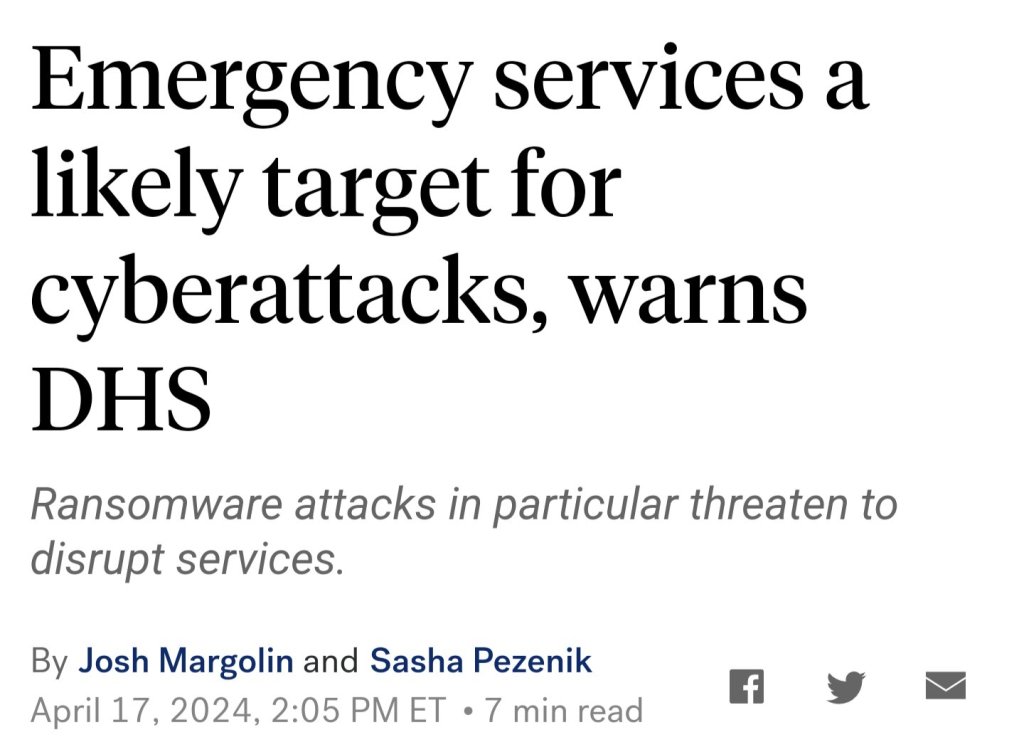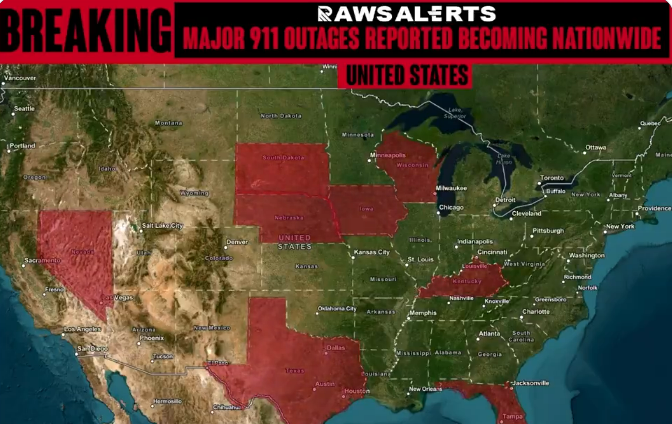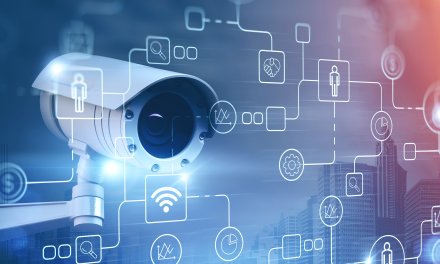BREAKING.🚨
911 outages strike at least NINE states:
• Texas
• Florida
• Nebraska
• Nevada
• South Dakota
• Iowa
• Minnesota
• Kentucky
• Wisconsin
There is no official word if this is a cyber attack or explanation given for the 911 outages.
BREAKING.🚨
911 outages strike at least NINE states:
• Texas
• Florida
• Nebraska
• Nevada
• South Dakota
• Iowa
• Minnesota
• Kentucky
• WisconsinThere is no official word if this a cyber attack or explanation given for the 911 outagespic.twitter.com/QAqhJAToiL
— Kyle Becker (@kylenabecker) April 18, 2024
Update:
Update on 911 outage: A fiber line servicing the 911 trunk system was cut. We have heard that this is affecting many states across the US. Reports from SD, IA, NE, WI, TX, FL and Nevada are without services.
— Tea Storm Chasers (@TeaStormChaser) April 18, 2024
911 outages
Possible cyber attack ?
System cutover ?
Either way, they told y’all this was coming.
— D.Sauce (TIE) (@DakotaSidwell) April 18, 2024
UPDATE as of 9:29pm PST, 911 services in South Dakota and Las Vegas has been restored:
🚨#UPDATE: South Dakota 911 Services has been Restored 9 other states are still experiencing outages at this time
— R A W S A L E R T S (@rawsalerts) April 18, 2024
NEVADA: 911 services have been restored in Las Vegas and Henderson (Source: State Police)
— U.S. Emergency Alert (@ENSAlerts) April 18, 2024
DHS warned us about this earlier today before it happened:

Here is ABC News reporting on it:
The analysis, compiled by the Department of Homeland Security (DHS) and obtained by ABC News, outlines concerns that the Emergency Service Sector can be exploited and mined for sensitive data, in turn hampering medical and law enforcement services and posing an ongoing threat to personal information and public safety.
“Cybercriminal exploitation of data stolen during ransomware attacks against the Emergency Service Sector (ESS) likely poses a persistent criminal threat due to the exposure and availability of victims’ personal information,” according to the April 10 bulletin.
Ransomware attacks have “disrupted the networks of police department and 911 call center operations,” the bulletin continued, putting computer-aided dispatching services out of commission and forcing emergency services “to revert to manual dispatching to sustain their operations.”
Once stolen, potentially sensitive personal information and police records can be leaked, sold or otherwise used by the attackers “to facilitate additional crimes — including extortion, identity theft, and swatting,” the DHS bulletin said.

“Whereas cyberattacks were once considered to be a technology issue, today they’re considered a threat to the very operations of law enforcement and other public safety agencies,” said John Cohen, the former intelligence chief at the Department of Homeland Security, now an ABC News contributor.
“Imagine the impact on local public safety if jail management systems were inoperable because of a cyberattack, that police communication capabilities were disrupted, that the public was unable to contact local police in an emergency, that detectives and investigators were unable to access sensitive case data,” Cohen added. “If a foreign terrorist group, or a nation state, can tie up law enforcement responses by targeting their 911 call center, or police departments can’t gain access to investigative or other important information – that will hamper their emergency response, and aid a threat actor in achieving their operational objectives.”
And because of how fundamental and highly sensitive emergency systems are, and the availability of personally identifiable information they include, they may strike cyber criminals as particularly attractive targets to extort, the DHS bulletin said, due to “the possible perception that ESS entities are motivated to pay ransoms to ensure continuity of services.”
“For a police department, or fire department, or any emergency service to be hijacked in any way, it’s a big problem for public safety and, additionally, you have to have a lot of resources devoted to addressing it. And it can also prevent us from doing investigations,” said Robert Boyce, an ABC News contributor and retired chief of detectives in the New York Police Department.
The new federal analysis punctuates an already volatile moment in America, as partisan tensions seethe ahead of a high-stakes presidential election, multiple wars are being waged abroad, and political violence has already broken out overseas.
Meanwhile, domestic extremists that remain emboldened to attack are also adopting more blended ideological grievances, intelligence analysts have found, making it increasingly difficult for authorities to identify the motivations behind attacks.

Communications officers work in the Harris County 911 Call Center, May 18, 2021, in Houston. Brett Coomer/Houston Chronicle via Getty Images
“As we’re going into election season, there is increasing concern that local communities will experience a combination of cyber information operations and physical attacks simultaneously. The physical activities, to disrupt the election process, and the cyber activities to disrupt the ability of local officials to respond,” Cohen said. Article Source via ABC News, read more here.






![Madonna does creepy Revelation 13 ritual summoning the Dragon to conquer the saints in her recent concert [VIDEO]](https://blazingpress.com/wp-content/uploads/2024/03/368843B4-9E08-49A2-B414-8D3249F11852-440x264.jpeg?crop=1)







